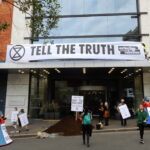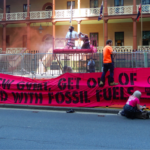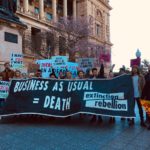Extinction Rebellion Shuts Down Nation’s Largest Port, With Union Approval
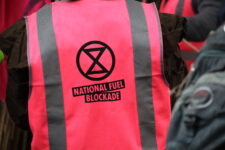
A cadre of Extinction Rebellion (XR) activists braved the pelting rain on 10 June to successfully shut down the transport of liquid fuel coming out of Port Botany for over four hours. It was the coldest NSW day for 37 years.
Just next to Sydney airport, Port Botany is Australia’s largest port and it’s where the bulk of NSW’s imported liquid petroleum and natural gas enters the state.
As part of the XR National Fuel Blockade, the closure aimed to draw attention to the dangers that PM Scott Morrison is placing the planet in by continuing to invest billions into further gas expansion at a time when transition to green energies is paramount.
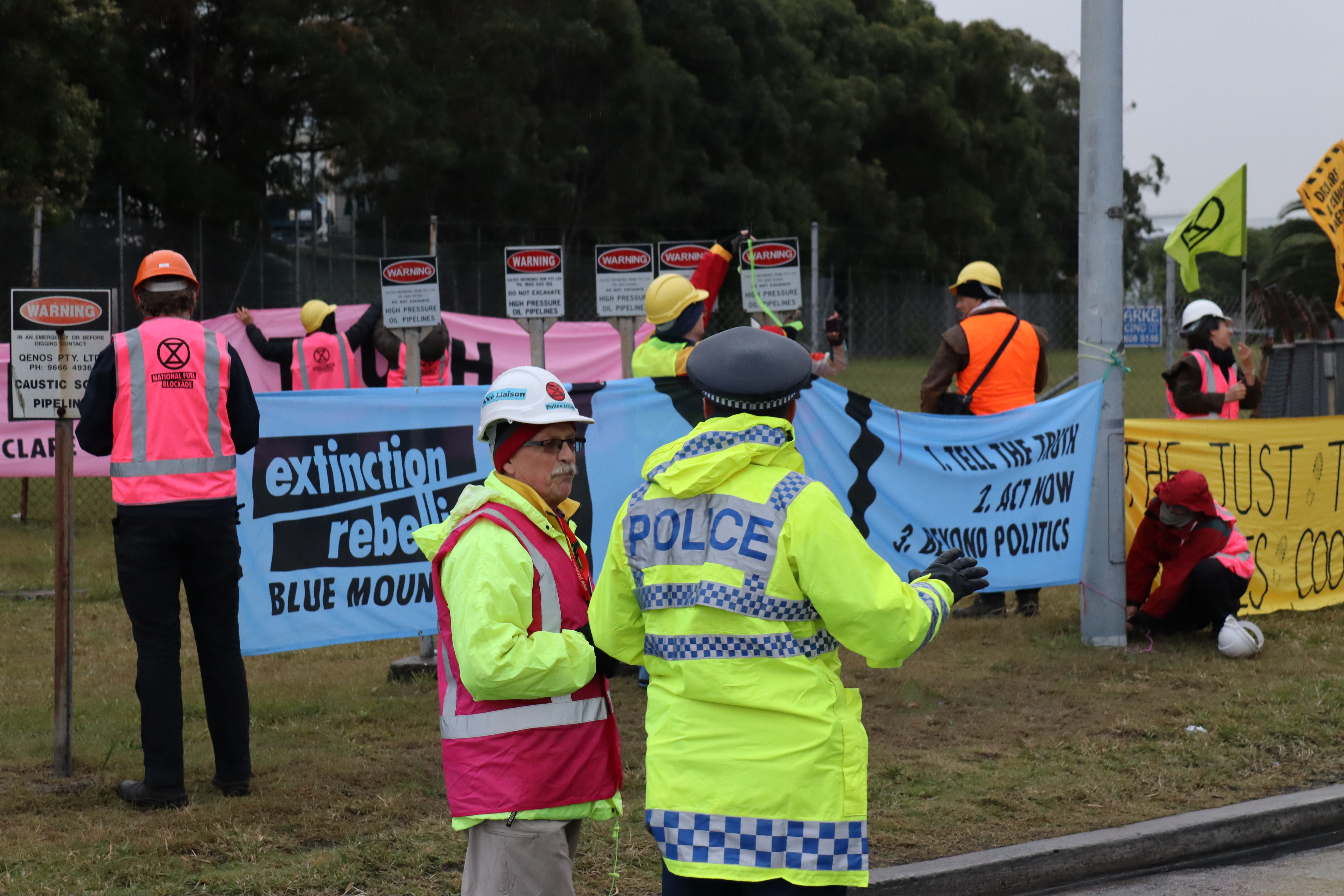
The XR organisers of the nonviolent direct action had previously notified NSW police of their intention to block liquid fuel trucks leaving the port facility. So, rather than battle the activists, port authorities shut down transport operations from 2 pm that afternoon right through to 6 pm.
This is a significant win for the nation’s climate movement as the only other entities to have brought the ports to a halt prior to this series of actions are the unions.
As XR activist Dr Martin Wolterding put it “we have established a precedent for the future blockade of trucks carrying damaging fossil fuels”.
Indeed, Thursday’s action took place as the climate battle is only set to only deepen, as, over the last 12 months, our PM has progressed to the front of the queue of world leaders who continue to lie about the climate emergency in order to prop up the profits of fossil fuel corporations.
Dwindling social licence
“Port Botany has the largest fossil fuel infrastructure in NSW,” explained XR rally organiser James Langley. “You’ve got the Cavern, which is the largest natural gas import facility in the southern hemisphere. And you’ve got the Vopak petrol and diesel distribution point.”
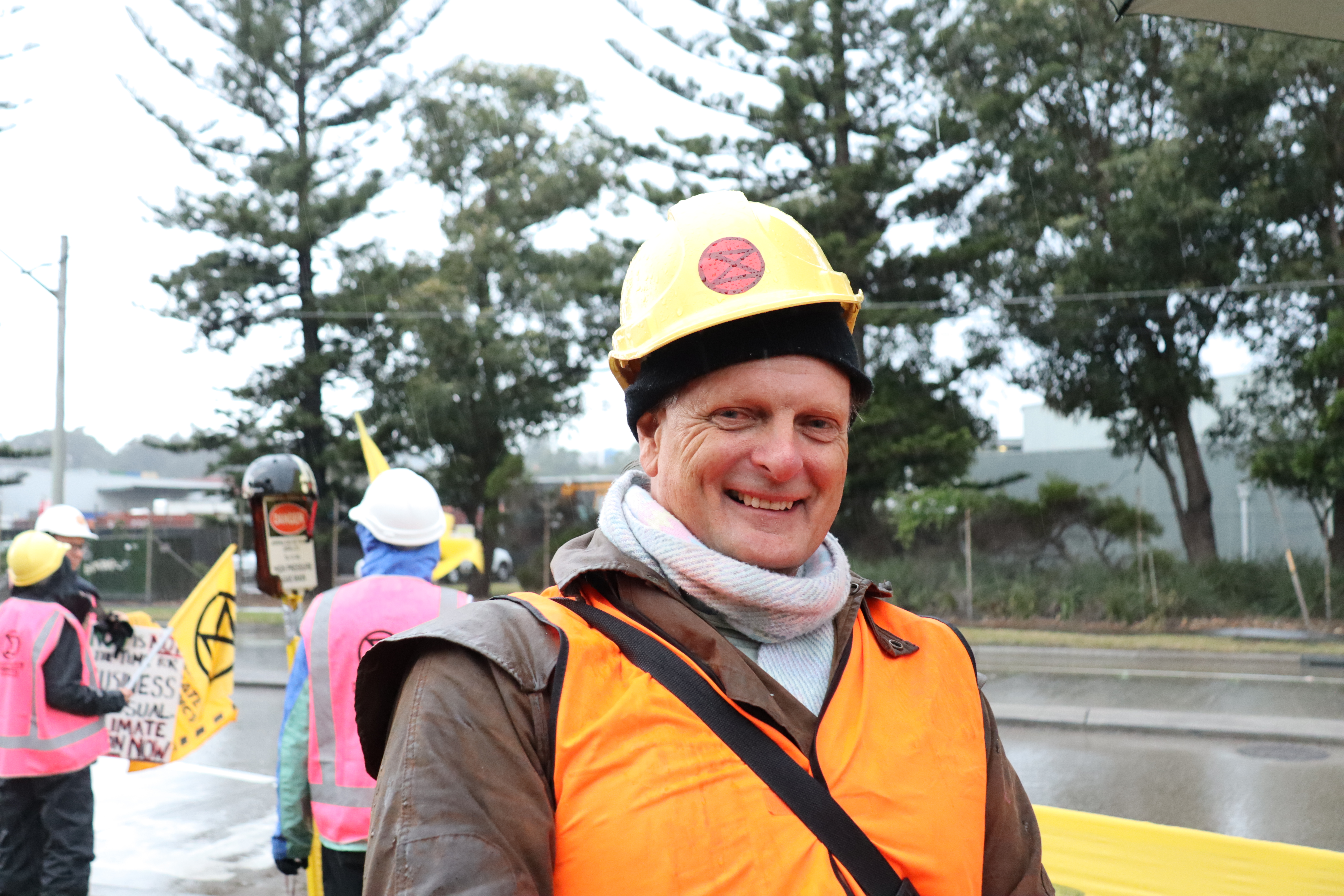
According to the climate activist, 92 percent of our nation’s petrol and diesel is now imported, as our onshore refineries have dropped down from fourteen to two over the last twelve years.
However, just a fortnight ago, the Morrison government announced $2.6 billion in funding to keep the last two struggling refineries alive.
“They could have bought them for that much. But they just handed the taxpayers’ money over,” Langley told Sydney Criminal Lawyers. “Our position is that they could have redirected that money to electric vehicle subsidies, because then we wouldn’t need to be importing petrol.”
The turn towards electric vehicles would address the 19 percent of our nation’s carbon emissions that are currently caused by liquid fossil fuel transportation, the protester further explained. And right now, our nation has no plan around how it will eradicate this part of its carbon footprint.
“Our intention is to put on notice that the fossil fuel industry’s social licence is evaporating,” Langley outlined.
“The scientists tell us we need to do this transition over the next 10 years. And while we haven’t seen action from government, today we are seeing action from the people.”
A just transition
Following the unprecedented Extinction Rebellion port blockade, the Sydney branch of the Maritime Union of Australia (MUA) released a statement in support of it and extended the call for immediate action to be taken on climate.
MUA Sydney secretary Paul Keating said that as a shift away from fossil fuel-based transport is imminent, action must be taken now in transitioning to low emissions employment, as workers can’t simply wait for their jobs to disappear as the rest of the economy changes around them.
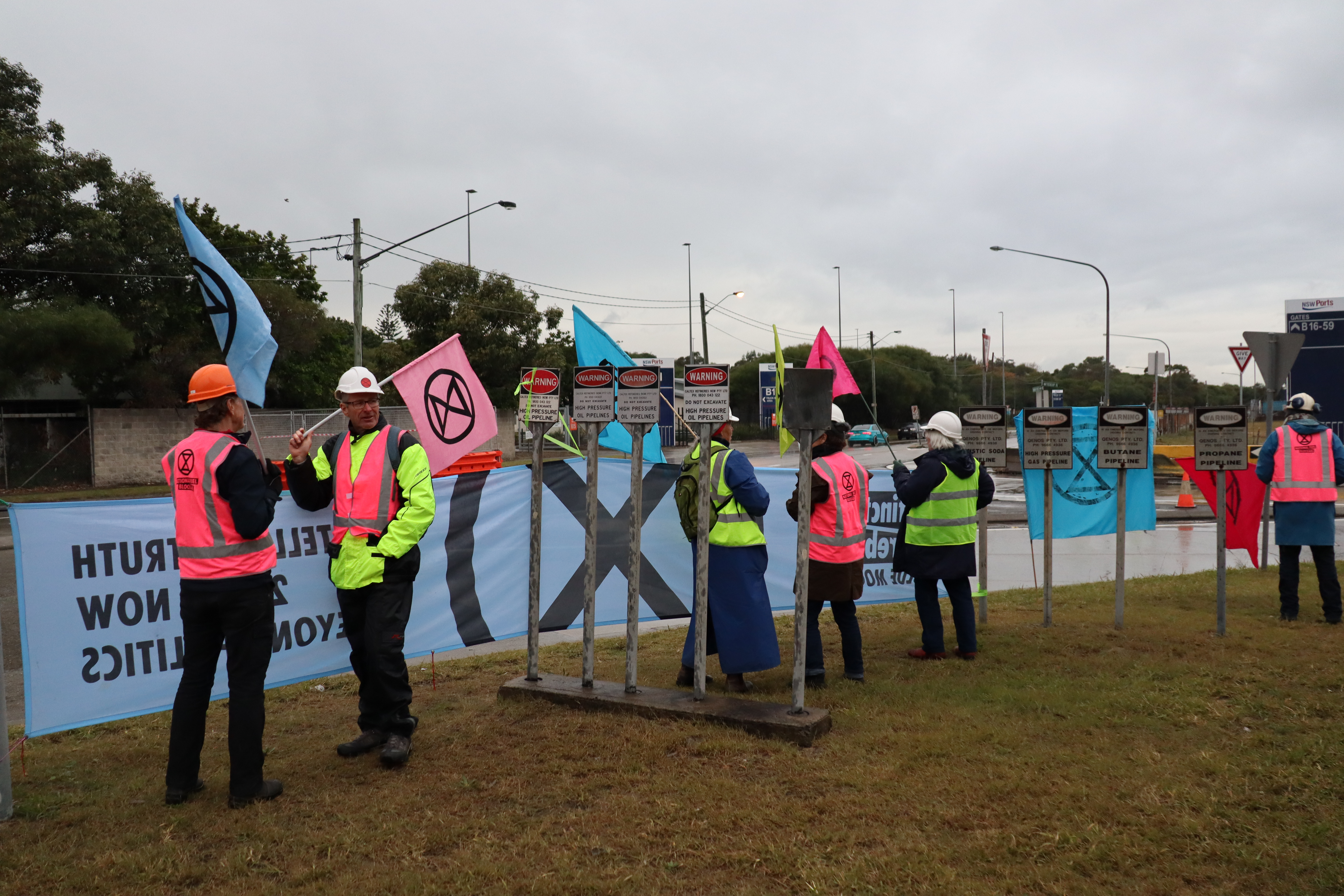
Wolterding said that following on from the MUA’s show of solidarity, XR hopes to work more closely with the union “in pressuring the government to transition from jobs that contribute to our climate problem towards renewable and green-friendly employment.”
The MUA statement further pointed to the International Energy Agency’s Net Zero by 2050 report, which indicates that with the shift away from fossil fuel-based transportation, there will be a huge decline in liquid fuel importations over the next 10 years.
Socialist Alliance member Rachel Evans stressed that the MUA speaking out in support of Extinction Rebellion, is an example of the “types of alliances we need to build to win the fight for a just transition and well paid, unionised, green jobs in the renewable energy sector”.
A climate pariah
“We’re letting the government know we’re not happy with the way they pretend to be running things,” said XR activist Fran Fagan at the Port Botany blockade. “They’re paying billions of dollars of taxpayers money propping up fossil fuel companies.”
Despite 20 percent of mainland forest having burnt to the ground during the climate-driven 2019/20 bushfire crisis, Morrison announced a gas-led recovery out of the COVID pandemic last September, which involves the opening up of five new gas fields nationwide.
“They are looking after their political donors and all of those things are exacerbating climate change,” Fagan made clear. “And it’s getting worse.”
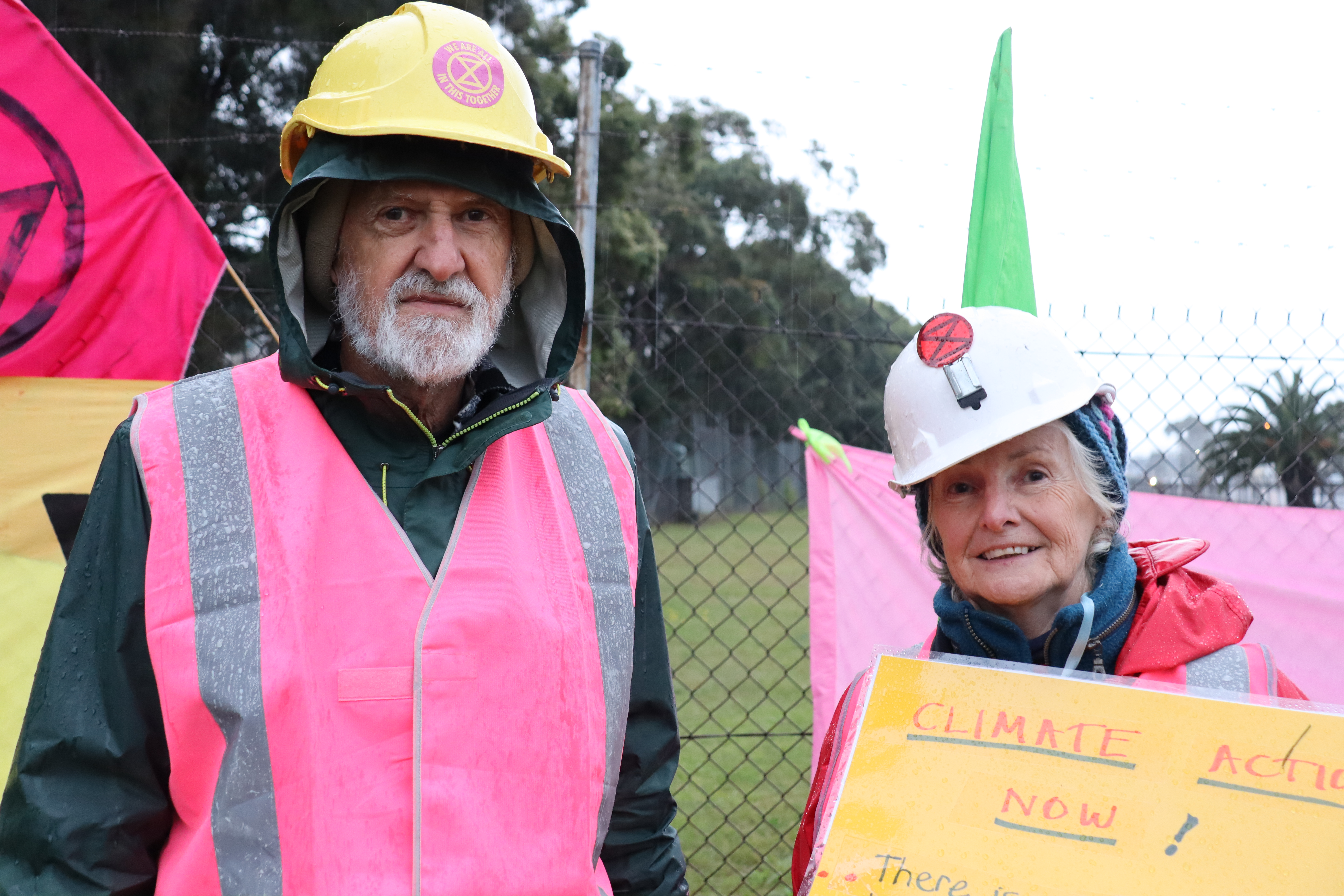
The 2018 IPCC report woke many across the planet to the climate crisis. It outlined that there were only 12 years left to combat rising temperatures by turning away from our reliance on fossil fuels in order to keep temperatures to below 1.5°C or, at the very least, below 2°C.
However, the Australian-produced Climate Reality Check 2020 warned that global warming is fast approaching 1.2°C, and a 1.5°C temperature rise is likely to arrive prior to 2030, while the dangerous 2°C is on the horizon well before 2050.
This weekend sees Scott Morrison invited to the G7 meeting in the UK. And as our PM has consistently done at every major international climate conference he’s attended since he took office, he’s set to refuse to adequately address the emergency in any meaningful way.
“If they go through with their gas-led recovery – which includes fracking in the Pilliga and the Northern Territory – that will release a lot more greenhouse gas into the atmosphere at a time when the whole world needs to start decreasing emissions,” Fagan concluded.
“We are really concerned about the impact on future generations, as we are already in a climate emergency.”



